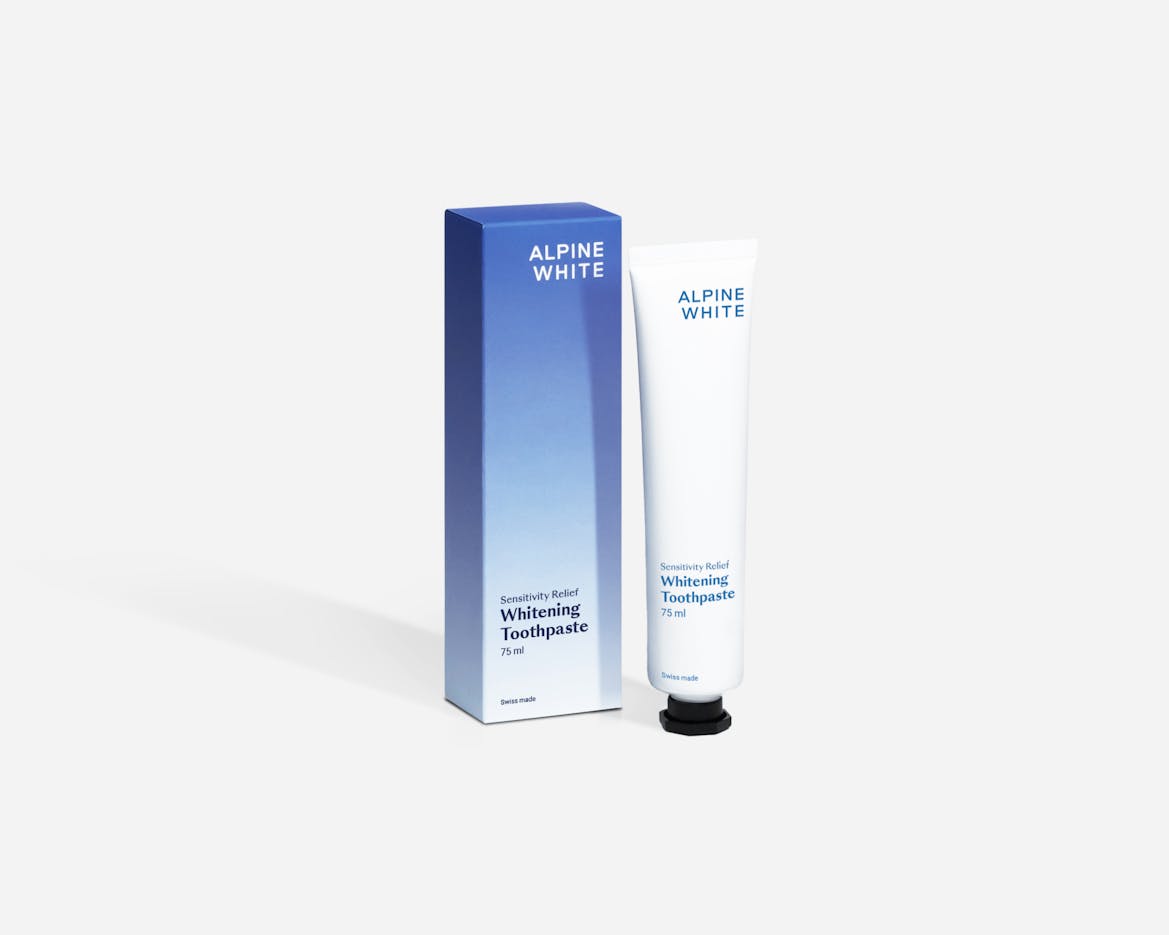Diabetes and oral hygiene
Inflammation of the dental apparatus is a common secondary disease of diabetes. Thus, the gums, the periodontium and the jaw bones can be affected. There is also an interaction between diabetes and dental diseases. As people with diabetes have a greater risk of gum disease (periodontitis) or diseases in the periodontium. Conversely, the constant inflammation in the mouth causes the insulin in the body to work less effectively, so the blood sugar level rises. Especially in people with type 1 diabetes, periodontitis can lead to metabolic derailments due to insulin deficiency. Other complications of diabetes are eye, nerve, heart and kidney disease.



What is diabetes?
The blood sugar disease diabetes is a broad term for various metabolic diseases. The common characteristic is that patients lack insulin due to elevated blood glucose levels and thus the insulin effect is reduced. Diabetes is divided into type 1 and type 2 diabetes. While type 1 is not curable, type 2 diabetes has therapeutic components.
There is also prediabetes. With prediabetes, blood sugar levels are higher than normal, but not high enough for a type 2 diabetes diagnosis. Prediabetes means that your blood sugar level is higher than normal. It is not yet high enough to be considered type 2 diabetes. However, without lifestyle changes, adults and children with prediabetes are at high risk of developing type 2 diabetes.
How do you get diabetes?
The triggers of type 1 and type 2 diabetes are different. What the two types of diabetes have in common is a decrease in insulin production, but at very different speeds.
In type 1 diabetes, the causes are only partially known. However, it is caused by an absolute lack of the hormone insulin, which is why this type of diabetes is also called insulin-dependent diabetes mellitus.
Type 2 diabetes is caused on the one hand by a reduced sensitivity of the body's cells to insulin (insulin resistance). And on the other hand, it is caused by years of overproduction of insulin, which leads to fatigue of the insulin-producing cells. As a result, the pancreas can no longer provide enough insulin to meet the increased demand. Being overweight, lack of exercise and hereditary predisposition are considered the three most important causes of this type of diabetes.
Why is oral hygiene so important in context to diabetes?
Diabetics have a higher risk of developing oral health problems like periodontitis, gingivitis or caries. The high blood sugar level changes the balance in the oral cavity and can lead to poorer blood circulation to the gums. The effects are dry mouth, inflammation of the gums, torn corners of the mouth and a fungal infection called thrush, which causes painful white patches in your mouth. To relieve thrush symptoms, a dentist or doctor can prescribe a medicine that kills the fungus that causes thrush. You may also need a special cleanser for your dentures.
If existing gingivitis is not treated, it can have dire consequences for diabetics. Insulin resistance is increased and blood sugar levels worsen. Chronic inflammation can also lead to a general decrease in the effectiveness of insulin. This a dangerous cycle that diabetics can prevent through thorough dental care and good dental health.
What is periodontitis?
Periodontitis is a chronic, bacterial inflammation of the periodontium. Gingivitis is a preliminary stage of it. Both are caused by bacteria on the tooth surface. Signs of gingivitis are red, swollen gums or even bleeding gums. With regular check-ups, dental treatment and good oral hygiene, gingivitis can be completely reversed. However, if these measures are not taken, periodontitis can develop. This usually progresses slowly but leads to the formation of gum pockets, which can also be purulent. Which leads to loose teeth. If it remains untreated, this results in tooth loss. Periodontitis is usually painless, so those affected often do not notice the inflammation.
Diabetes care and protection against gum disease (periodontitis)
Well-controlled blood glucose levels are especially important for maintaining healthy gums and teeth. Proper oral care is equally important to prevent dental diseases such as periodontal disease. Because bacteria remain on the teeth or under the gum line, the plaque hardens and forms tartar. Therefore, teeth should be brushed at home with fluoride toothpaste at least twice a day and dental floss should be used at least once a day to prevent plaque buildup on the teeth. In addition, mouthwash can further help to remove bacteria from the mouth. In addition, a soft toothbrush should be used for gentle dental care.
It is further important to have regular dental visits and to have your teeth cleaned by a professional dental hygienist. Dental hygiene helps prevent periodontitis and tooth decay. Bacterial plaque is also removed. And the final fluoridation protects and strengthens the tooth enamel. On top, your teeth will shine brighter after plaque removal.
More tips for healthy teeth with diabetes
A chewing, sugar-free and high-fibre diet should be given special consideration in diabetes management. This stimulates the salivary glands, promotes blood circulation to the periodontium and has a beneficial effect on diabetes.
In addition, diabetics should make sure that they drink enough fluids. This protects against dry mouth and prevents inflammation of the periodontium, tooth decay and bad breath. At least two litres of water should be drunk per day.
All readers are strongly advised to always seek the advice of a registered healthcare professional for diagnosis and answers to their medical questions and to make sure that the therapy, service, product or treatment described on the website is appropriate for their situation.
Maintain good oral health with Alpine White
With Alpine White, you don't have to give up a white smile despite diabetes. Because we offer you the right dental care and professional teeth cleaning for optimal oral health. Our Sensitive products - such as Whitening Strips Sensitive or Whitening Toothpaste Sensitivity Relief - are based on a clinically tested whitening formulation. In addition, our products remineralise your tooth enamel to relieve existing tooth sensitivity. The antioxidants in the products fight gum inflammation. So you have healthy teeth with products formulated in Switzerland.


White teeth despite sensitivities. The Whitening Strips Sensitive are mildly concentrated and whiten your teeth sustainably and safely. Suitable for any tooth position.
- Clinically and dentally tested
- Gentle on teeth, peroxide-free and extra mildly formulated
- Whiter teeth after 3 days
Regular dental hygiene for diabetics
As a diabetic, you should go for dental hygiene at least once a year. You need a doctor's certificate for this, whereby the Hba1c value should be between 5.7-7.8. mmol/l. The dental hygienists at Alpine White Studio specialise in detecting diseases such as caries, periodontosis and cavities at an early stage and helping you maintain your health.


Regular professional dental cleaning is essential for a healthy mouth and beautiful teeth. Our specialized staff identifies signs of cavities early and prevents them.
- Personalised treatment
- Gum check & caries control
- Painless cleaning with AIRFLOW
White teeth for diabetics - the best toothpaste
Tooth whitening toothpastes often damage the teeth in the long term, as important care ingredients are omitted. This is a big problem, especially for diabetics. If you want to whiten your teeth with a whitening toothpaste, we recommend that you look for a moderate RDA value (erosion strength of the toothpaste) as well as caring ingredients. We have developed three Whitening Toothpastes that both whiten teeth but are also ideal for daily care. We recommend that diabetics use the Whitening Toothpaste Sensitivity Relief.


Your first aid for sensitive teeth. Whitening for sensitive teeth with Whitening Toothpaste Sensitivity Relief. For gentle daily dental and oral hygiene.
- Relieves tooth hypersensitivity
- Based on our clinically tested Whitening formulation
- Remineralizes the enamel and relieves existing tooth sensitivity
- Antioxidants for healthy gums
- Formulated and produced in Switzerland



